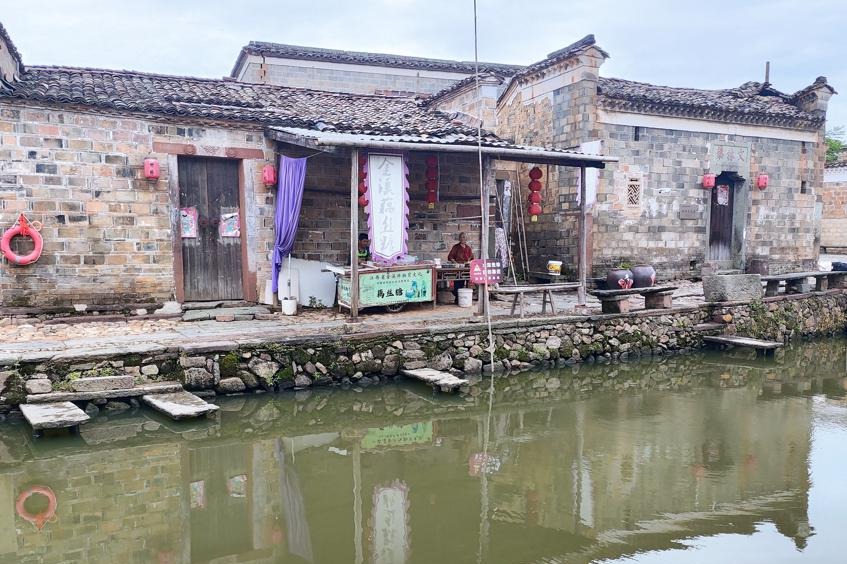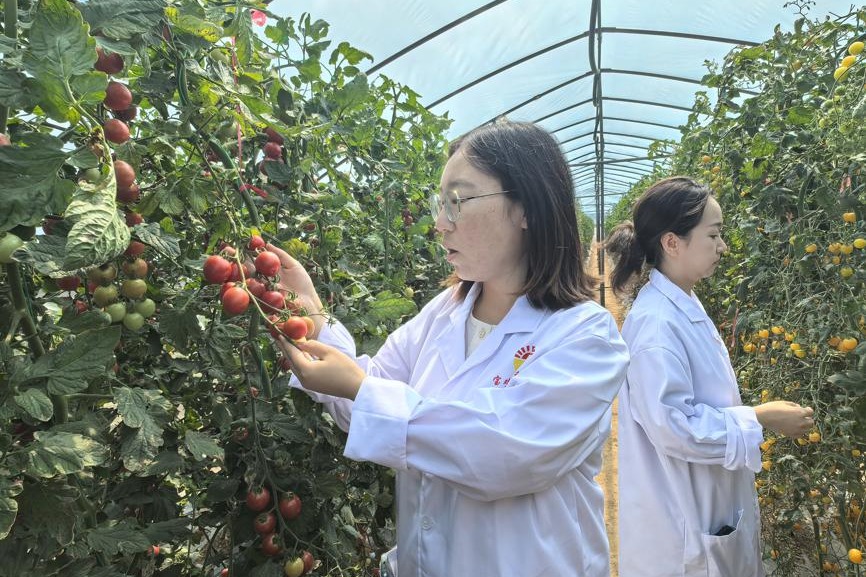Cooperatives easing poverty in rural areas

Operations backed by government or started by entrepreneurs aim to improve the sales of farm produce

The small village of Xiadang in Ningde prefecture of Fujian province has drawn 128 of 300 resident families so far into a tea cooperative that was set up in 2016. The initiative provides fertilizers to the growers and assists in the sale of tea. Photos by Satarupa Bhattacharjya
Rural cooperatives are playing an increasing role in China's war on poverty.
The latest central government data suggest that more than 30 million Chinese live below the national poverty line, which is set at per capita annual income of 2,300 yuan ($345; 300 euros; £265), with the worst-hit areas being in the Tibet autonomous region, the Xinjiang Uygur autonomous region and the provinces of Sichuan, Gansu, Yunnan and Qinghai.
China is seeking to end extreme poverty by 2020.
Fujian, a province of 38.7 million people on the country's east coast, saw significant poverty reduction in its inland areas in the past year that many local officials and rural residents largely attribute to farm cooperatives. The province's north is relatively poorer than its south but claims it has few people left in absolute poverty today.
China Daily took part in a recent media group tour of villages and towns governed by the prefecture-level cities of Ningde and Nanping, each with a population of around 3 million.
Hundreds of rural cooperatives for small-scale enterprises related to grain, fruit, tea, vegetables, flowers, edible fungi, animal husbandry and seafood have been registered in recent times in Ningde, according to local officials. The purpose of such "household communes" - strictly organized collectives - is to help farm produce sell better.
The operations are mostly government-backed, but some are initiated by entrepreneurs themselves.
In this part of Fujian, as is the case with some other places in rural China, the lack of access to markets has traditionally contributed to poverty along with remote locations, disabilities and illnesses among people, natural calamities and uneven regional development over the decades.
"We want to develop industry and tourism in the countryside and boost agricultural e-commerce," says Lin Wenfang, deputy Party chief of Ningde.
In Ningde's small yet stunning village of Xiadang, through which a green river flows under an age-old wooden bridge, a cooperative has drawn 128 of the 300 or so resident families since it was formed in 2016. Other than providing fertilizers to the growers, the cooperative attempts to sell unprocessed tea of three main varieties: white, red and green.
Wang Guangchao, an elderly member of the cooperative, says a kilogram of tea fetches up to 20 yuan.
"We use a phone app to monitor tea growth in the gardens," he says, clarifying that younger members of the cooperative mostly use it.
The village, which is tucked away in a mist-covered, hilly corner of Ningde and has many species of butterflies and other insects, aspires to earn from tourism as well.
But first, more hotels will have to be built nearby, village official Xiang Zhonghong says.
While many of Xiadang's young people are migrant workers elsewhere, more local jobs could mean an opportunity for them to return.
In the larger county of Shouning, where the village is located, a makerspace has been established to facilitate the marketing of tea and other agricultural items such as mushrooms, dried bamboo shoots, red beans and sweet potato vermicelli for cooperatives across a dozen villages and towns.
A few years ago in another county named Pingnan, a private cooperative was set up by seven people in the village of Lingxia. Now, 12 poor resident families are part of the initiative, which includes breeding snails and carp in lotus ponds that also serve as a base for lotus seeds - eaten as a snack in China.
Lu Dayong, president of the Pingnan Lingxia Plantation Cooperative, says the blooming lotuses bring tourists to the village but the outfit requires more technological support.
Analysts have previously commented in field journals that cooperatives will need further attention if China is to achieve its "green society" objective, not just for poverty alleviation.
A part of Nanping's rural earnings came from cooperatives in 2017. The collective income of its 1,632 villages, according to officials, was around 290 million yuan.
"Last year, 13,000 poor families joined cooperatives related to agriculture and agricultural tourism," says Wang Bin, the city's deputy mayor.
More than 6,000 such collective farms were launched.
China's history of rural cooperatives dates back to the 1930s, when both nationalists and communists encouraged the model. After a lull, it has witnessed a revival in the past decade, partly owing to the limitations of conventional farming in the face of industrialization.
Chen Changzhen, a 47-year-old resident of Cikou village in Nanping, says raising livestock was not productive, so he founded a bamboo cooperative. Around 1,300 people live in his village, where bamboo groves are in abundance. The bamboo shoots from his cooperative are sold in the more affluent Zhejiang province and in Shanghai.
Nanping has shut down some polluting husbandry businesses lately to protect its large forested area.
"We are working to enhance quality testing for agricultural products," says Wang, the deputy mayor, adding that branding was also being emphasized.
The local government is looking to boost a cottage liquor industry in the countryside through cooperatives.
Chen Changxing, 62, a resident of Nanping's Zhangdun village, makes liquor at home from grapes grown in the village under a poverty alleviation program.
"A cooperative helps me sell the bottles in Shenzhen (a city in southern China)," he says.
China was expected to provide more than 100 billion yuan for poverty relief this year, according to earlier media reports.
Xing Wen contributed to this story.
satarupa@chinadaily.com.cn
- Smart agriculture provides solutions for BRI countries
- Foreign experts, journalists explore China's cultural heritage
- Jiangxi county pioneers innovative rural development approach
- China's 'medicine capital' company goes fully automated
- Beijing prosecutors helping errant minors to get back on track
- Copyright Society of China wins approval to be observer of world intellectual property body






































